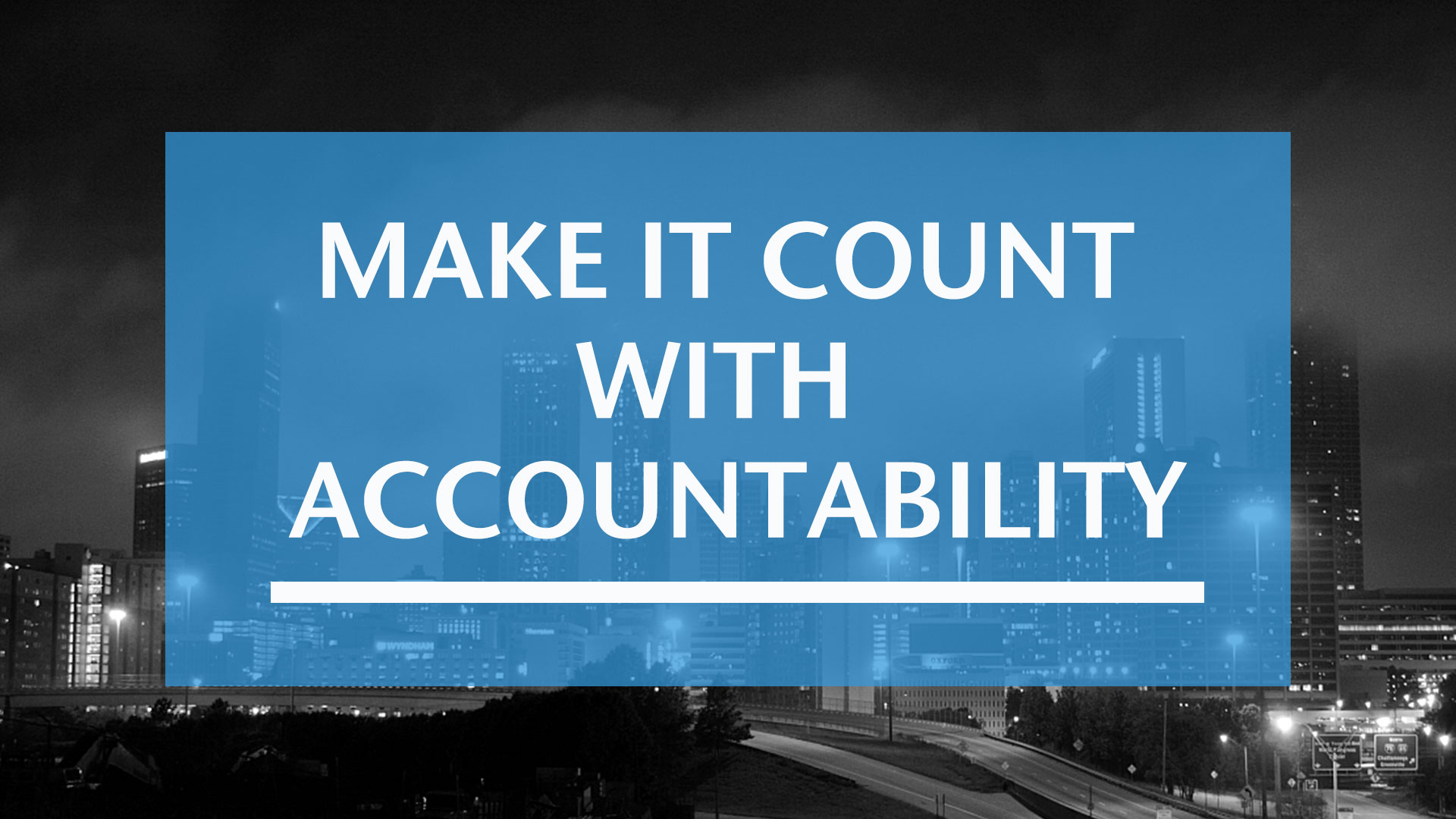
I don’t know about you, but I know I’m always more likely to work out if I have a partner or even if I tell someone close to me that I’m going to do it. In this type of situation, peer pressure actually comes in handy by making sure we follow through to our commitments and goals. Peer pressure works. And that’s because we, as humans, have a social nature, and once we are connected to somebody we feel a sense of binding commitment. Don’t you feel guilty when you have to cancel plans with a friend?
That is why I’ve decided to take this commitment to the other side and show you how your business can benefit from it. We talked about MVP’s and ways to plan and prep you for launches. Now, how do you make sure your people, or even you, will follow through on all the parameters and goals you set? One word: accountability.
Implementing Accountability
The Merriam-Webster dictionary defines accountability as “an obligation or willingness to accept responsibility or to account for one’s actions”. At the same time, Dr. Robert Cialdini, a social psychologist who writes about social-influence and decision making, has studies that show: 1) peer pressure is powerful, especially when the decisions we are making are complex and ambiguous, and 2) the closer we are to the person or group we are comparing ourselves to, the more likely we are to be influenced by them. Therefore not only does accountability represent a great opportunity for growth, it also represents a huge space for failure. Think about it, if people do not take accountability, when things go wrong instead of trying to solve the problem they simply sit and watch as it all crumbles, thinking they have no part in it and so there’s nothing they can do to change the situation.
Here’s what you need to implement accountability in your business:
- It needs to start with you. Leadership creates culture, so you will always set an example for those around you. If you want your people to take ownership of their actions, then you have to be seen to take ownership.
- Remember that accountability is not a one-time thing. People who don’t want to be held accountable always look for opportunities to get out of it. Any gaps in your accountability will give them the chance to only be accountable when they see fit.
- Accountability applies to everyone. There’s no playing favorites, otherwise you discredit your own system.
- it’s not something you can delegate. People have to accept it and the best way to get them to do so is making sure they have everything they need to be successful.
- You have to hold people accountable. You can’t just tell people to be accountable, you have to check-in, set-up review sessions and see how people are doing. This way they’ll know they’re being held accountable, as well as it offer you the opportunity to provide support or offer praise.
Other forms of Implementing Accountability: Peer-based or Accountability Partnerships
Yes, accountability is part of the culture you build, however it does not have to only be a top-down command. Since people respond better to those who are close to them peer-based partnerships might work better for your team. In her research visiting outcome-focused organizations, Leigh Stringer found that a peer to peer relationship seems to be easier to organize and is more effective a tool for making progress towards a goal.
Accountability partnerships work when they are a collaboration between two people (colleagues, friends, etc) who like and respect each other. The number one thing is that your partner needs to be someone you trust, who will keep you honest and moving on a path you set for yourself. The process of setting up an accountability partnership is quite simple:
- Find someone you trust to be your accountability partner. Even better if it’s someone with a different personality than yours.
- Talk to them about your goals and tell them you’re looking for help to stay on track.
- Be very specific about the actions you will take to reach your goals, as well as ways you’ll be rewarded or punished.
- Set-up regular check-in times.
- Revisit goals from time to time.
What’s particularly interesting about this system is that not only does it promote better financial performance, it also tends to make employees feel like their company as a whole is looking out for them, which makes them happier and more likely to stick around.
Do’s & Don’ts of Partnerships
To make sure your accountability system is effective, here are some do’s and don’ts to keep in mind.
DO:
- Know what you need. After all, accountability is linked to specific outcomes and you can’t get where you need to be if you don’t know where you’re going.
- Make it a priority. Since this is a partnership, you have to remember that this is not just about you. Which is why it’s important to establish and honor a structure – for example, you establish that you’re going to meet in person every Friday morning for coffee so you can check-in on one another. If you don’t prioritize your commitment to your partner, it doesn’t just affect you, it affects his outcome too.
- Use a custom tracking system. This will depend on what works for you and how you like to keep track of your progress. It could mean having a spreadsheet (daily, weekly, monthly), it could mean making use of a project management tool such as Trello, it could mean a journal, or anything else that is structured for you to stay on top of what you’re doing.
- Prioritize your goal-related activities. It’s great that you’ve been able to figure out what you want to achieve, what your goals are, but they won’t mean anything if you don’t actually execute your plans.
- Choose your partner wisely. The right support system will determine your success, so choose someone who’s as committed as you are, with similar values, that is available to you when you are available, who communicates similarly to you, who’s interested in helping you succeed and who really does have your best interest at heart.
DON’T:
- De-prioritize it. If your accountability falls off your priority list, you must tell your partner – after all, you own it to yourself and him, as well as it’s his job to keep you on track. And at the end, if you’re no longer interested and would like to disengage, just be honest instead of faking your way through it. Don’t waste your or anybody’s time.
- Be judgemental or lack empathy. Your partner should mean a safe place, which means supportive, empathetic and understanding. The second either part breaks that, it breaks the trust built in the relationship, defeating the purpose of the partnership.
- Break a commitment for a meeting. Hold yourself or your partner accountable. Go through the motions and make the phone call or at least meet even if you cannot get everything done in a short amount of time. The act of following through is what keeps you at bat and not in the dugout.
Are you accountable for your actions? Does your company invest in this type of culture? I’d love to hear about the outcomes!



